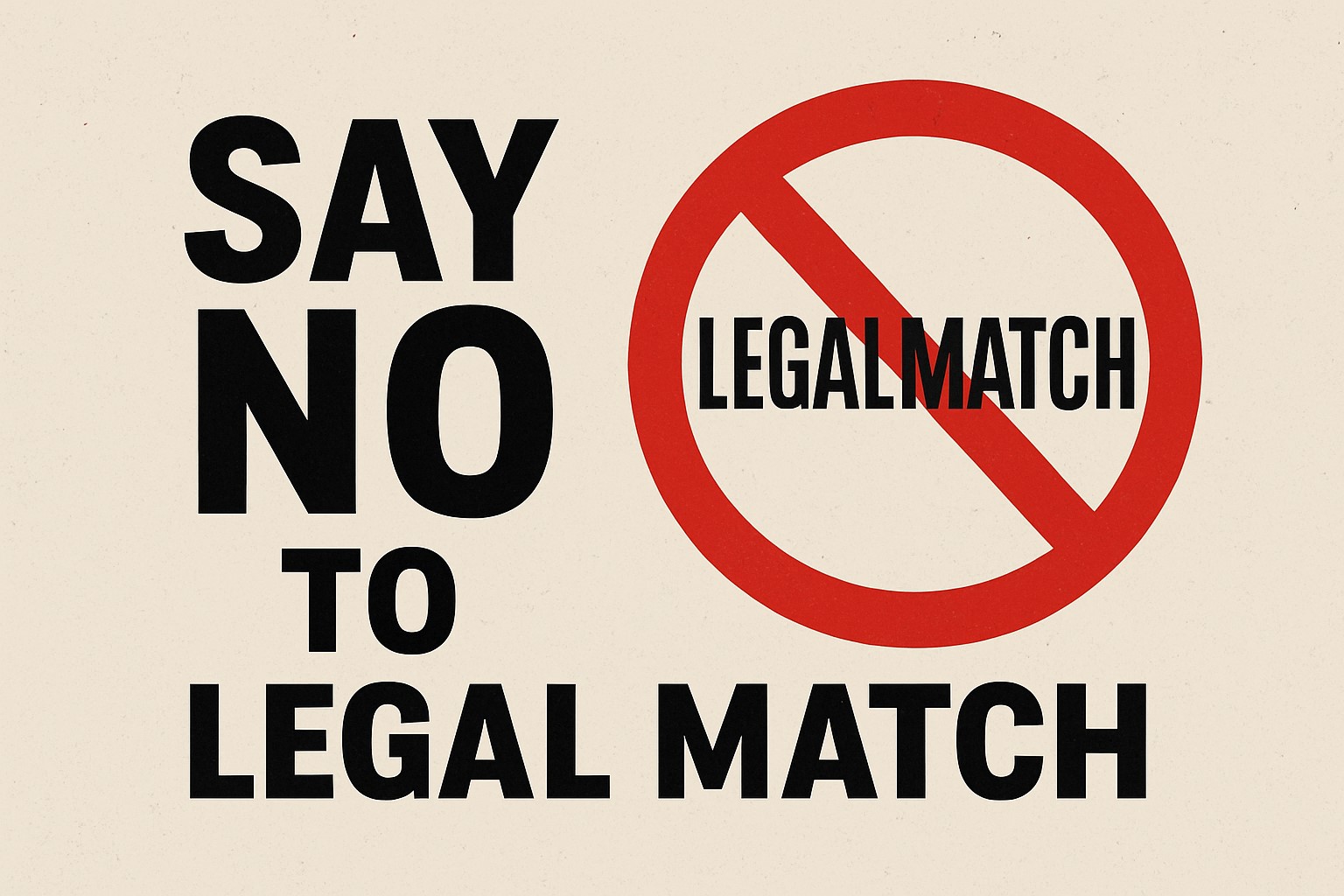
If you’ve ever Googled “how to get more clients as a solo attorney,” chances are you’ve stumbled across LegalMatch. They promise a steady stream of exclusive leads tailored to your practice area and location. Sounds great on paper—but in practice, most attorneys find it to be an expensive disappointment.
This isn’t just anecdotal. Across legal forums, review sites, and professional groups, LegalMatch reviews reflect widespread dissatisfaction among attorneys. And based on what I’ve seen firsthand and observed in my network, the criticism is well-earned.
What They Claim
LegalMatch markets itself as a legal lead generation service. A potential client submits a short intake form, which the platform supposedly matches to attorneys who’ve paid for access in that practice area and geographic zone. The sales team emphasizes exclusivity, high-quality leads, and return on investment.
But here’s the catch: you don’t get to evaluate the quality of the leads before committing to a pricey contract, and once you’re in, it’s not easy to get out.
Common Complaints from Attorneys
1. Low-Quality Leads
The most common complaint—by far—is that the “leads” are often unqualified, unresponsive, or simply seeking free advice. Many attorneys describe receiving intake forms from people outside their jurisdiction, with no budget, or who ghost entirely after an initial message.
This is especially problematic for attorneys in niche fields. If you’re a Maryland appellate lawyer, for example, generic consumer leads from LegalMatch are practically worthless. You’re paying for noise.
2. High Upfront Costs
LegalMatch contracts usually lock you in for 6 or 12 months and cost thousands of dollars—often without any refund if the leads don’t convert. There’s no “trial” period, and the only way to find out what you’re getting is to take the leap and hope it works.
Many lawyers find they would have been better off spending that money on a professionally designed website, targeted ads, or simply doing nothing at all.
3. Aggressive Sales Tactics
Even attorneys who never sign up report being harassed by LegalMatch sales reps. Personally, I’ve asked them multiple times to stop calling me—and they still do. That alone tells you something about the culture of the company. If you’re on the fence, expect high-pressure follow-ups that often ignore clear “no” signals.
Any Upside?
To be fair, LegalMatch can deliver lead volume—particularly in high-demand, low-barrier areas like landlord-tenant, traffic, or small claims. And because leads are “exclusive” (allegedly routed to just one attorney per area), you’re not directly competing with four other lawyers like on Thumbtack or Bark.
But even when the volume is there, the quality often isn’t. For attorneys in competitive fields or those who rely on high-value clients, LegalMatch is rarely worth the price of admission. Indeed, their site doesn’t have a category to search for appellate lawyers, for example.
Final Thoughts
LegalMatch is the legal marketing equivalent of cold-calling the phone book and hoping someone says yes. It’s expensive, opaque, and geared toward volume over value. Worse, it treats lawyers like just another sales funnel entry—aggressively marketing to us long after we’ve said “no thanks.”
If you’re serious about building long-term visibility, skip the lead mills. Focus on SEO, content creation, and directory listings where you control the message. Start with your own site. Build real authority. Don’t pay thousands to a third party just to chase unvetted leads.
If you want to see what a professional profile should look like, here’s mine: Maryland appellate attorney.
Image Credit: OpenAI DALL-E
 Law Office of Jason Ostendorf LLC
Law Office of Jason Ostendorf LLC